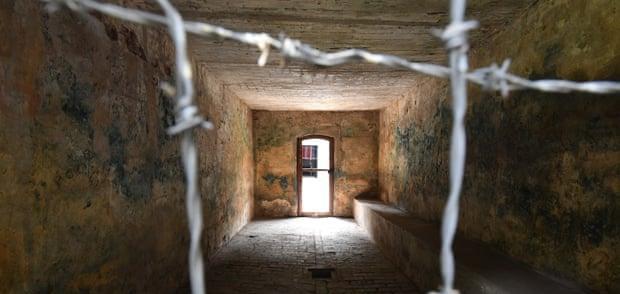According to the British "Guardian" report, on October 17, local time, the German city of Hamburg began to trial Bruno Dey, a 93-year-old guard of the Nazi-era Stuthof concentration camp. This could be one of the last of these trials.

Bruno Dey joined the Skeleton Corps, the SS that managed the Nazi concentration camps, at the age of 17, and was responsible for guarding the Stutthof concentration camp near the polish city of Gdansk. In court, he was charged with assisting in the murder of 5,230 Jews in a concentration camp between August 1944 and April 1945.
Of the 5,230 people held in the camps, 5,000 died of typhus due to lack of food, water, medicines and catastrophic sanitary conditions;
German media reported that Dey had been investigated by investigators on eight occasions, and in one of them, he admitted to hearing screams at the time and realizing that massacres had taken place in the camp. "I probably know that these people are not guilty, that they are imprisoned here only because they are Jews. They should have the right to live and work freely like everyone else. However, he did not consider himself an accessory to the massacre: "If I don't serve as a guard, they will find someone else to be there, so what's the use?" ”
Prosecutors disagreed with him. Prosecutors believe he could have spared the guard there, especially in 1944, when he could have fought on the Eastern Front. Dee said he had heart problems and was unable to fight.
The trial involved 20 plaintiffs, all of whom had been held in the Stuthof concentration camp. Starting at the end of October, multiple witnesses from the United States, Israel and Poland will testify.
Lawyers for one of the plaintiffs said the trial was not about revenge, and for these plaintiffs, they would prefer to see the German courts admit the injustices they had suffered and hope that their sufferings will be remembered by history.
The Stutthof concentration camp was the first concentration camp established by Nazi Germany outside its borders, which opened on September 2, 1939, and was the last to be liberated on May 9, 1945. The camp initially held Polish political prisoners and intellectuals, and has since begun to hold more and more Jews transferred from the Baltic region, Hungary and Auschwitz in Poland. At the end of 1944, 70 percent of the camp's population was Jewish.